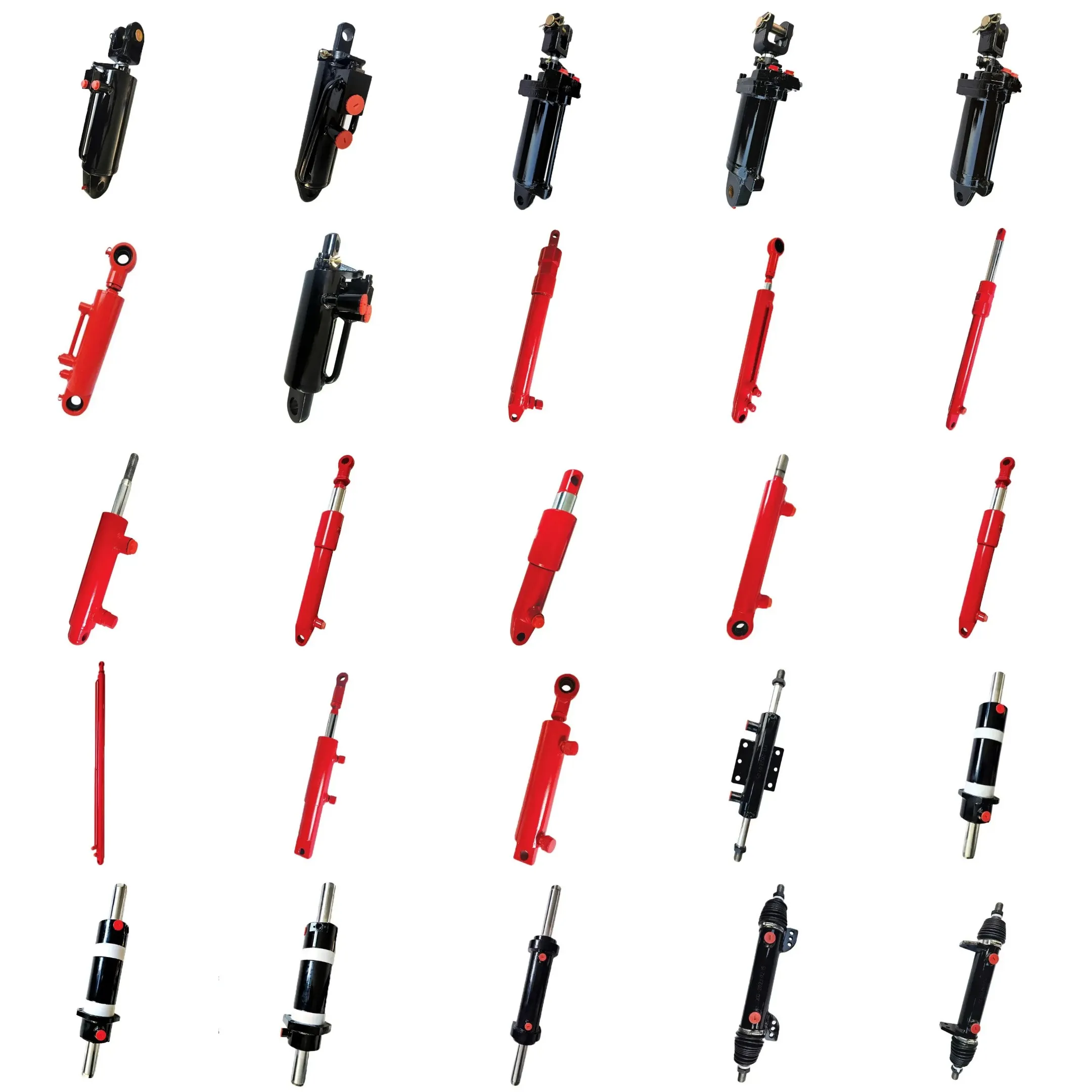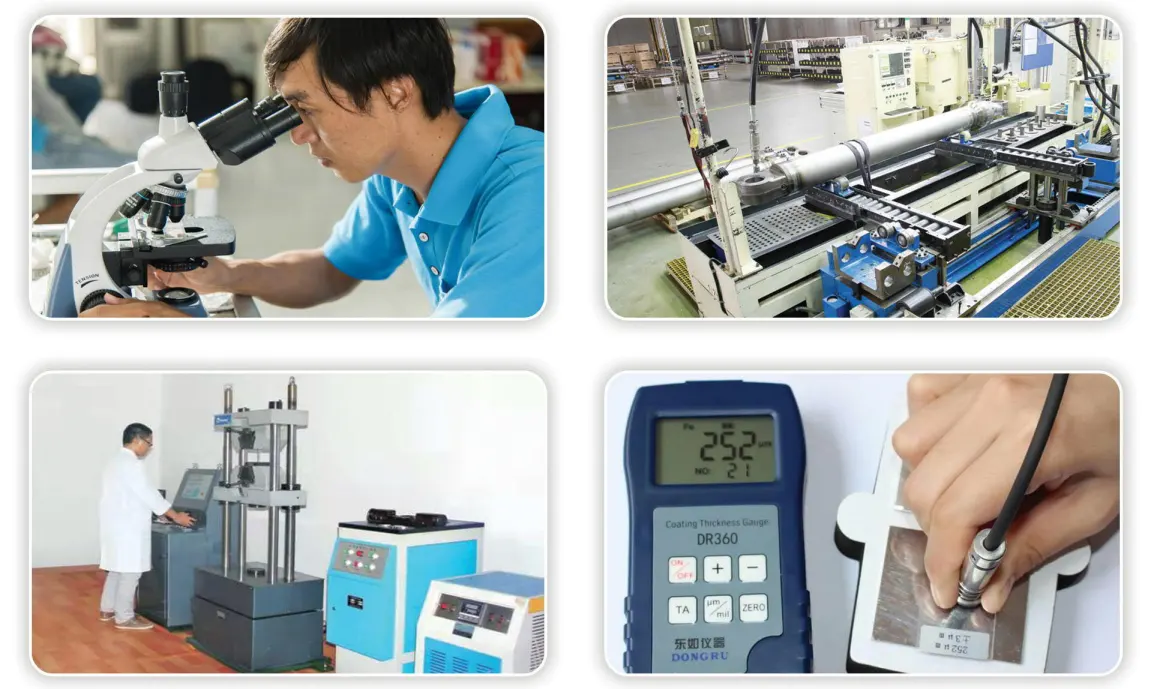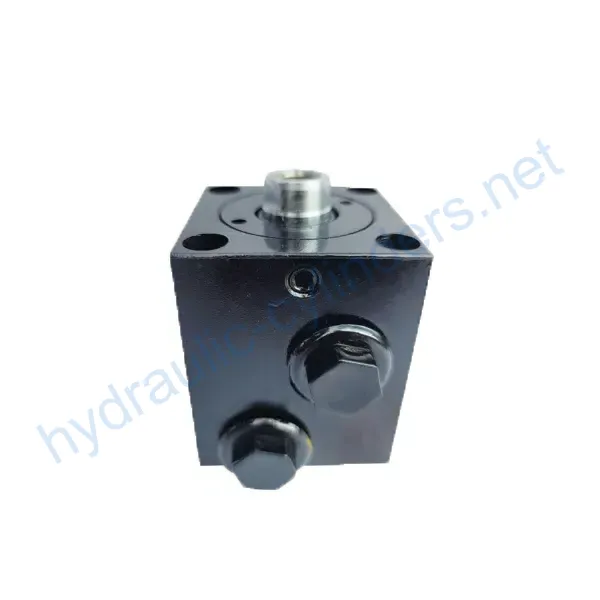Sanitation Vehicle Switching Hydraulic Cylinder
Sebagai salah satu produsen, pemasok, dan eksportir silinder hidrolik, Kami menawarkan silinder hidrolik dan banyak produk lainnya.
Silakan hubungi kami untuk informasi lebih lanjut.
Surat:sales@hydraulic-cylinders.net
Produsen pemasok eksportir silinder hidrolik.
Sanitation Vehicle Switching Hydraulic Cylinder
Product Overview
The Sanitation Vehicle Switching Hydraulic Cylinder is a crucial component designed for the efficient operation of sanitation vehicles. This specialized hydraulic cylinder facilitates the switching mechanism essential for the effective functioning of various sanitation equipment. Its primary purpose is to convert hydraulic energy into mechanical force, enabling the smooth movement and control of sanitation apparatus. This hydraulic cylinder plays a significant role in enhancing the operational efficiency of vehicles by allowing precise control over lifting, tilting, and maneuvering functions. With a robust design and reliable performance, it ensures the sanitation operations are carried out seamlessly, contributing to cleaner environments.
Product Specifications
Below are the detailed specifications of the Sanitation Vehicle Switching Hydraulic Cylinder:
- Cylinder Diameter: 32mm
- Rod Diameter: 20mm
- Travel: 20mm
- Installation Distance: 84mm
Detailed Specifications Explanation
The cylinder diameter of 32mm provides a strong foundation for the hydraulic operations, offering substantial force. The rod diameter of 20mm is engineered for optimal strength while maintaining a lightweight profile. With a travel of 20mm, this cylinder allows for efficient movement in confined spaces. The installation distance of 84mm is designed to ensure compatibility with standard sanitation vehicle frameworks, facilitating easy integration during installation.
Features of the Hydraulic Cylinder
- High Durability: Designed to withstand harsh conditions, ensuring long service life.
- Efficient Performance: Provides smooth and reliable operation for sanitation applications.
- Customizable Options: Available in various configurations to meet specific customer needs.
- Easy Installation: Engineered for straightforward installation and maintenance.
- Cost-Effective: A competitive solution that reduces operational costs over time.
We manufacture this product with precision, ensuring it perfectly replaces existing hydraulic cylinders in sanitation vehicles, enhancing their operational efficiency.
Applications of the Hydraulic Cylinder
Sanitation Vehicle Operation
The primary application of this hydraulic cylinder is in sanitation vehicles where it is used to operate the lifting and tilting mechanisms for waste collection bins. This functionality is essential for efficiently emptying bins without manual intervention, thereby enhancing safety and productivity. The hydraulic system enables the operator to control the lifting height and angle, ensuring that the waste is dumped effectively, even in tight spaces.
Industrial Cleaning Equipment
Another significant application is in industrial cleaning machinery. The hydraulic cylinder facilitates the movement of brushes and other cleaning components, ensuring thorough cleaning in large facilities. Its robust design allows it to withstand continuous operation, making it ideal for heavy-duty cleaning tasks.
Waste Management Facilities
In waste management facilities, this hydraulic cylinder is utilized within sorting and processing equipment. It helps in automatically adjusting the position of sorting mechanisms, which is vital for optimizing the waste segregation process. By automating this function, facilities can enhance their efficiency and reduce labor costs.
Agricultural Applications
The hydraulic cylinder can also be adapted for agricultural machinery, such as waste collection trailers. Its ability to facilitate the lifting of heavy loads makes it suitable for various agricultural tasks, including transporting organic waste from farms, contributing to sustainable farming practices.
Recycling Equipment
This cylinder is essential in machinery used in the recycling industry, where it operates compactors and balers. By providing the necessary force to compress materials, it significantly increases the efficiency of recycling operations, facilitating better space utilization and transport of recycled materials.
Design Considerations and Selection Criteria
Load Capacity
When designing hydraulic cylinders, load capacity is a critical factor. It determines how much weight the cylinder can handle without failure. A thorough analysis of the operational requirements is essential to ensure the cylinder can support the intended load, providing safety and reliability throughout its service life.
Sealing Mechanisms
Sealing is crucial for the efficient operation of hydraulic cylinders. High-quality seals prevent fluid leakage, maintaining pressure and performance. The choice of sealing materials, such as polyurethane and nitrile rubber, is vital for ensuring durability and effectiveness, particularly in harsh working environments.
Durability
Durability is a key consideration in hydraulic cylinder design. The materials used must withstand considerable mechanical stress and environmental factors, such as moisture and temperature fluctuations. This ensures a longer lifespan and minimizes the need for frequent replacements, thereby reducing overall operational costs.
Safety Features
Safety is paramount in hydraulic systems. Incorporating safety features such as pressure relief valves can prevent overloading and potential failures. These design considerations are essential to protect operators and equipment during operation, ensuring a safe working environment.
Maintenance and Accessibility
Ease of maintenance is another crucial design aspect. Hydraulic cylinders should be designed for straightforward inspection and serviceability, allowing for quick replacements of seals and other components. This minimizes downtime and enhances operational efficiency.
Sealing and Lubrication
To ensure optimal performance, several sealing components are employed in hydraulic cylinders, including piston seals and rod seals. These seals are typically made from wear-resistant materials like polyurethane and nitrile rubber, which provide excellent durability and resistance to hydraulic fluids. Proper sealing prevents any hydraulic fluid leakage, maintaining the efficiency of the system.
The cylinder body and threaded ends are subject to precision machining to enhance wear resistance, extending the service life of the hydraulic cylinder. Regular lubrication is also essential, requiring periodic addition of hydraulic oil to reduce friction and wear on moving parts, ensuring smooth operation.
Preventive Maintenance Measures
- Regular Inspections: Conduct frequent checks for leaks, wear, and damage to ensure early detection of issues and prevent failures.
- Lubrication: Ensure timely addition of hydraulic oil to maintain proper lubrication of the cylinder’s moving parts, reducing friction and wear.
- Seal Replacement: Regularly replace worn seals to prevent leaks and maintain system efficiency, preserving pressure integrity.
Installation Guidelines
Correct installation of the Sanitation Vehicle Switching Hydraulic Cylinder is crucial for optimal performance. Begin by ensuring that the cylinder is aligned with the system’s mounting points. Utilize appropriate mounting brackets to secure the cylinder firmly, avoiding any undue stress on the unit. The hydraulic lines should be connected as per the manufacturer??s specifications, avoiding sharp bends that could restrict fluid flow.
After installation, check the alignment of the cylinder to ensure it operates smoothly without obstruction. It is essential to bleed the hydraulic system of any air to maintain pressure efficacy. Finally, conduct a functional test to verify that the cylinder operates as intended, making adjustments as necessary.
Common Maintenance Tasks
Regular Inspections
Performing regular inspections is vital for identifying potential issues before they escalate. Focus on checking for signs of wear, fluid leaks, and any unusual sounds during operation. This proactive approach helps ensure the hydraulic cylinder continues to function effectively throughout its lifespan.
Proper Lubrication
Lubrication is integral to the longevity of hydraulic cylinders. Ensure that the hydraulic fluid is at the correct level and that it is changed regularly to prevent contamination. This will enhance the cylinder’s performance and reduce the risk of premature wear.
Seal Replacement and Calibration Checks
Replacing seals at the first sign of wear will prevent fluid leaks and maintain hydraulic pressure. Additionally, performing calibration checks ensures that the cylinder operates within its designed parameters, preventing potential damage and ensuring safety during operations.
Safety Considerations and Environmental Factors
Prioritizing safety in the design and operation of hydraulic cylinders is essential. Proper training for operators and adherence to safety protocols can mitigate risks associated with hydraulic fluid leaks or cylinder failures. Additionally, considering environmental impacts when selecting materials and fluids helps promote sustainability within hydraulic operations.
Troubleshooting and Common Issues
- Fluid Leaks: Check seals and connections to identify and repair any leaks to maintain system pressure.
- Reduced Performance: Inspect hydraulic fluid levels and quality; low or contaminated fluid can lead to inefficiencies.
- Unusual Noises: Noises during operation may indicate mechanical wear or inadequate lubrication; investigate promptly.
Troubleshooting Tips
When facing issues with the hydraulic cylinder, it is crucial to diagnose the problem effectively. Start by checking for visible leaks, which can often be fixed by replacing seals. If performance is lacking, assess the hydraulic fluid levels and quality; low or contaminated fluid can severely impact efficiency. Listening for unusual sounds during operation can also provide clues; these may indicate the need for lubrication or indicate wear on internal components. Taking preventative measures, such as regular maintenance, can significantly reduce the likelihood of experiencing these issues in the first place.

About Our Company
We are a leading manufacturer of hydraulic cylinders, offering a comprehensive range of products that cater to both domestic and international markets. Our commitment to quality has established us as one of the foremost hydraulic cylinder producers and wholesalers. We pride ourselves on our expertise, backed by international certifications that validate our high manufacturing standards.
Our customization services allow us to meet specific client needs, ensuring that we provide tailored solutions for various applications. With state-of-the-art production equipment, we maintain efficiency and precision in all our manufacturing processes. Furthermore, our dedicated after-sales service ensures that our customers receive ongoing support, enhancing their satisfaction and trust in our products.

Author: lyl
Ikuti Tur Pabrik VR Kami:
Ikuti tur ke pabrik VR kami dengan yang berikut ini
Aplikasi Silinder Hidraulik:


